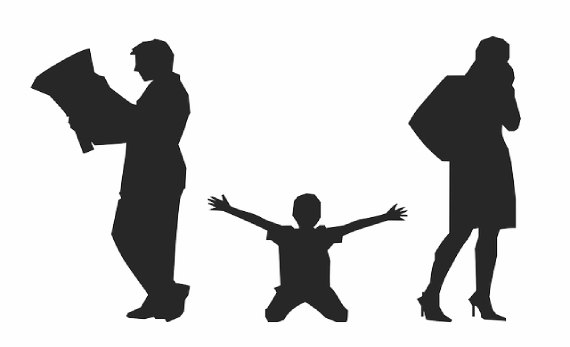Empathy is the foundation of human connection. It allows us to feel understood, supported, and valued. But what happens when that connection is broken? Empathic misattunement occurs when someone fails to recognize or respond appropriately to another person’s emotions. It’s not always intentional, but it can have lasting effects on emotional well-being. When people feel unheard, invalidated, or misunderstood, it creates emotional distance, making relationships more difficult. Whether it happens in childhood, friendships, or romantic relationships, empathic misattunement can shape how we see ourselves and others. Understanding this issue can help improve emotional connections and create healthier relationships.
How Does Empathic Misattunement Happen?
Empathic misattunement occurs when there’s a disconnect between one person’s emotions and another person’s response. This can happen in many ways:
- A child cries but is told to “stop overreacting.”
- A friend shares a problem but gets dismissed with “you’ll be fine.”
- A spouse expresses sadness, but their partner changes the subject.
Sometimes, people ignore emotions because they don’t know how to respond. Other times, they might minimize someone’s feelings because they are uncomfortable with deep emotions. In some cases, a person may be too distracted or overwhelmed to recognize another’s distress. Over time, repeated instances of empathic misattunement can cause emotional pain and distance.
Signs That Someone Isn’t Understanding Your Feelings
Empathic misattunement isn’t always obvious. You might sense it in small interactions that leave you feeling unheard or invalidated. Some common signs include:
- They downplay or dismiss your emotions.
- They give advice instead of acknowledging your feelings.
- They seem distracted or uninterested when you share something important.
- They quickly change the subject when you talk about your emotions.
- They make you feel guilty for expressing your feelings.
- They don’t notice when you’re upset unless you explicitly tell them.
These behaviors can make it hard to feel emotionally connected to someone, even if they care about you.
How Empathic Misattunement Affects Our Emotions
Feeling misunderstood isn’t just frustrating—it can deeply impact emotional well-being. When someone experiences empathic misattunement frequently, they might:

- Feel lonely, even in close relationships.
- Struggle to express emotions openly.
- Doubt their own feelings or feel like they’re “too sensitive.”
- Develop anxiety or depression due to emotional neglect.
- Avoid sharing emotions because they expect to be ignored.
When emotions aren’t validated, people can start suppressing them, which can lead to emotional distress, resentment, or a fear of vulnerability.
Why Feeling Misunderstood Hurts
Humans are wired for connection. When someone invalidates our emotions, it can feel like rejection. Over time, repeated experiences of empathic misattunement can create deep emotional wounds, leading to trust issues and emotional detachment.
Does It Happen to Everyone?
Yes, everyone experiences empathic misattunement at some point. No one can be perfectly attuned to others all the time. However, when it happens frequently—especially in close relationships—it can create emotional disconnection and long-term distress.
Can It Be Fixed?
Yes, empathic misattunement can be addressed. With self-awareness, better communication, and emotional effort, people can learn to attune more effectively to others. It takes patience and practice, but improving emotional connection is always possible.
Empathic Misattunement in Childhood
Empathic misattunement in childhood can have long-term effects. When parents consistently fail to recognize or validate a child’s emotions, the child may grow up feeling unworthy of emotional support. Common examples of childhood misattunement include:
- A parent telling a sad child, “You’re fine, stop crying.”
- A child expressing fear and being told, “Don’t be silly, there’s nothing to be scared of.”
- Parents ignoring a child’s emotional needs due to their own stress or struggles.
When children grow up in emotionally invalidating environments, they may struggle with self-worth, emotional regulation, and relationships later in life.
How Parents and Friends Can Help
Empathic attunement isn’t about always saying the “right” thing—it’s about being emotionally present. Parents and friends can improve emotional connection by:
- Validating emotions instead of dismissing them.
- Actively listening without interrupting.
- Asking open-ended questions like, “How are you feeling?”
- Offering comfort instead of solutions when someone is upset.
These small efforts can help rebuild emotional trust and strengthen relationships.
Simple Ways to Improve Emotional Connection
Improving emotional connection doesn’t require major changes—just small shifts in communication and mindset.

Why Listening Is the Key
One of the best ways to avoid empathic misattunement is active listening. This means:
- Giving someone your full attention.
- Making eye contact and using body language to show you’re listening.
- Responding with empathy, such as saying, “That sounds really hard.”
- Avoiding distractions while someone is sharing their feelings.
Small Changes That Make a Big Difference
- Instead of saying, “You’ll be fine,” try: “That sounds tough. I’m here for you.”
- Instead of changing the subject, try: “Tell me more about how you’re feeling.”
- Instead of assuming someone is okay, ask: “Would you like to talk about it?”
These small shifts can make people feel heard, valued, and emotionally connected.
Thoughts: Understanding Each Other Better
At the core of empathic attunement is understanding. Taking time to listen, validate, and be emotionally present strengthens relationships and creates a sense of security.
Empathic Misattunement in Adulthood
While childhood misattunement has lasting effects, it also occurs in adult relationships. In romantic relationships, empathic misattunement can cause misunderstandings, emotional distance, and resentment. In friendships, it can create feelings of loneliness or frustration. Recognizing the signs and making an effort to improve emotional connection can help strengthen adult relationships.
The Bottom Line
Empathic misattunement happens when someone fails to recognize or validate another person’s emotions. While it’s common, frequent misattunement can cause emotional pain, disconnection, and even long-term struggles with self-worth. The good news is that it can be improved through active listening, validation, and emotional awareness. Small changes—like truly listening, acknowledging emotions, and being present—can make a big difference in relationships. By understanding and addressing empathic misattunement, we can build stronger, healthier emotional connections with the people around us.


